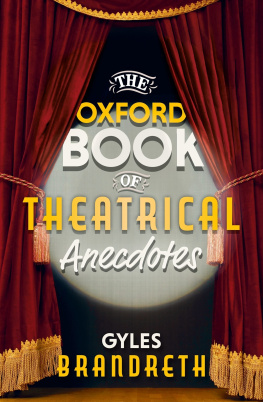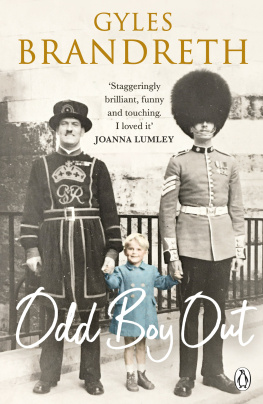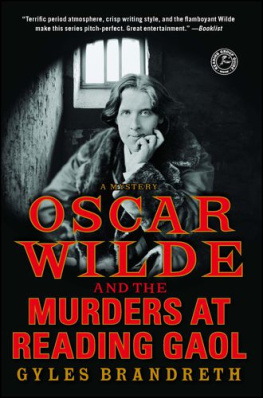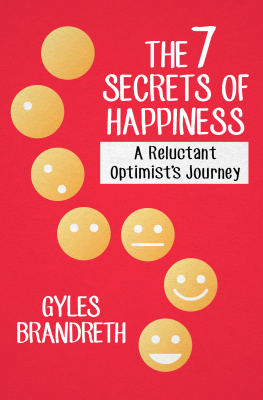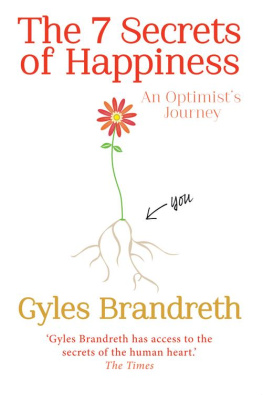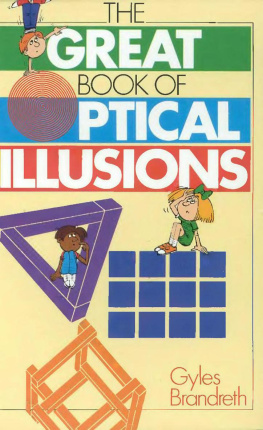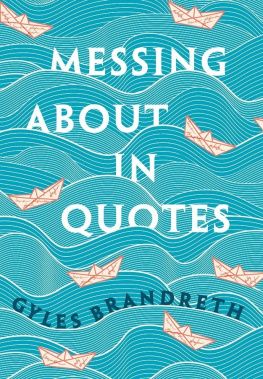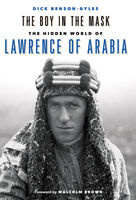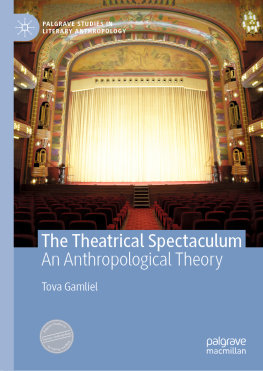THE OXFORD BOOK OF THEATRICAL ANECDOTES

Great Clarendon Street, Oxford, ox2 6dp, United Kingdom
Oxford University Press is a department of the University of Oxford. It furthers the Universitys objective of excellence in research, scholarship, and education by publishing worldwide. Oxford is a registered trade mark of Oxford University Press in the UK and in certain other countries
Gyles Brandreth 2020
The moral rights of the author have been asserted
First Edition published in 2020
Impression: 1
All rights reserved. No part of this publication may be reproduced, stored in a retrieval system, or transmitted, in any form or by any means, without the prior permission in writing of Oxford University Press, or as expressly permitted by law, by licence or under terms agreed with the appropriate reprographics rights organization. Enquiries concerning reproduction outside the scope of the above should be sent to the Rights Department, Oxford University Press, at the address above
You must not circulate this work in any other form and you must impose this same condition on any acquirer
Published in the United States of America by Oxford University Press
198 Madison Avenue, New York, NY 10016, United States of America
British Library Cataloguing in Publication Data
Data available
Library of Congress Control Number: 2020934896
ISBN 9780198749585
ebook ISBN 9780191066528
Printed and bound in Great Britain by
Clays Ltd, Elcograf S.p.A.
Links to third party websites are provided by Oxford in good faith and for information only. Oxford disclaims any responsibility for the materials contained in any third party website referenced in this work.
For Michle
whom I met at an audition in 1968,
and who, on stage, in the wings,
backstage, in the gallery, the circle and the stalls,
has been my best friend and good companion
ever since

You are welcome, take your place
the merchant of venice
What is an anecdote? According to my favourite dictionarythe Concise Oxford, fourth edition, given to me for my twelfth birthday in 1960, but still a valued companion sixty years onan anecdote is a narrative of detached incident, the story of a stand-alone moment.
For that same birthday, in 1960, I was taken to the Old Vic theatre in London to see my first Romeo and Juliet. It was directed by Franco Zeffirelli and starred a young Judi Dench as Juliet. I went with my parents. It turned out that Judi Denchs parents were there, too. When Juliet came on and said to the Nurse (played by Peggy Mount), Where are my father and my mother, Nurse? a reassuring voice called out from the stalls, Here we are, darling, in Row H. I have been collecting theatrical anecdotes ever since. (You will find that one, authenticated by Dame Judi, on p. 668.)
When I go to the theatre, which is often, I am almost willing the unexpected to happen. I was at the Royal Shakespeare Theatre in Stratford-upon-Avon in 1974 when the late, great Nicol Williamson, in the middle of a schools matine of Macbeth, kicked a wooden stool across the stage in a fury and bellowed at the noisy children in the stalls to belt up or get out. My wife was at the Criterion Theatre in London, some years later, to see Williamson leave the stage six minutes after starting a performance of his one-man show about the actor John Barrymore, remarking to the audience as he departed, I dont want to do this anymore. In the event, he was back on stage the following night, explaining that the part was overwhelming and he didnt want to play it if he was feeling under par. On another occasion, in New York, Williamson punched a fellow actor at the curtain call, apparently because he had misheard the actor who had whispered as the curtain fell, Thats a wrap.
That story reminds me of the charming, wiry, one-armed Irish character actor David Kelly, who first came to notice playing the title role in Samuel Becketts Krapps Last Tape at the Abbey Theatre in Dublin in 1959. Later, when he played the part in New York, he relished the review that appeared beneath the headline: At last the Krapp we have been waiting for. And that reminds me of the matine my wife and I attended at the Abbey, during which another fine Irish actor, Norman Rodway, in a Restoration romp, tripped on stage as he made his entrance and tore a ligamentcausing the abandonment of the play because there was no understudy.
I was not there at Cyrano de Bergerac at the Bristol Old Vic when the dashing matine idol Peter Wyngardes wig was set alight by a candle and the actor hopped frantically around the stage before eventually yanking off his flaming head of hair to reveal to his aghast admirers that, actually, he was bald. More traumatically, I was at the Mermaid Theatre in London on the first night of William Trevors The Old Boys starring the mighty Sir Michael Redgrave, who had a lifelong terror of first nights. Halfway through the play the earpiece that was feeding him his lines slipped its moorings and clattered to the floor, leaving the great actor bereft and speechless.
I wish I had been there when Redgraves near-contemporary Sir Ralph Richardson was appearing in Brighton in the pre-London run of Joe Ortons What the Butler Saw, and, mid-performance, tottered down to the front of the stage and enquired, loudly and with a certain urgency, Is there a doctor in the house? A man in the circle identified himself. Sir Ralph looked up and said, Terrible play, isnt it, doctor?, before tottering back upstage and carrying on with it.

